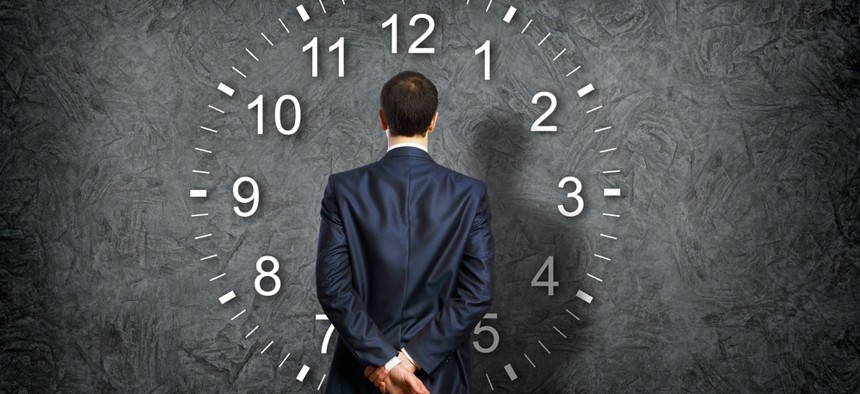
Sergey Nivens/Shutterstock.com
When Priorities Clash, Time Seems Shorter
Considering the opportunity cost of things might be practical, but it can also make your day seem a lot shorter.
“It's a strange thing, but when you are dreading something, and would give anything to slow down time, it has a disobliging habit of speeding up.” That's a quote from Harry Potter author J.K. Rowling. Perhaps Rowling isn't as profound as Einstein, but research shows that this insight about the nature of time might be more than anecdotal.
Time is of course, relative. In economics, the question of what to do with one's time is often described by opportunity cost. That is, the opportunity cost of reading Harry Potter and the Goblet of Fire is measured by the next best use of time—the book that you didn't read because you read Harry Potter. Included in the idea of opportunity cost is the fundamental concept that resources are limited, and that scarcity is real. One thing that people seem to constantly run out of? Time.
But since time is relative, what if we could make it seem longer? A new studylooks at what the pressure of choice, particularly that of conflicting priorities, does to the perception of time. "People may feel time constrained for a few reasons. On some days, for instance, we may just have more things on our to-do lists than we have time to accomplish. But beyond objectively not having enough time, people can also feel that they don't have enough time, even if they do," explains Jordan Etkin, a professor at Duke University's Fuqua School of Business and one of the authors of the study.
Etkin and her colleagues looked that the psychology surrounding goals and the perception of time. She found that when goals are in conflict, it creates stress and anxiety which contracts our perception of time. For example, one of Etkin's experiments had participants read statements that conflicted with each other (such as I want to do well at work and spend time with loved ones; I want to save money and buy nice things; and I want to be healthy and eat tasty foods), participants then reported feeling stressed and more pressed for time.
In five experiments, the researchers tested how conflicting goals affected their participants' perception of time. In one of those experiments, they asked participants to choose between four differently priced cars: of the four, one car has the best survival rate in an accident, but the worst rating for pollution; another car has the worst survival rate, but the best rating for pollution. They found that those who valued both safety and eco-friendliness were anxious and stressed, and their perception was that they had less time (though not less money) to make a decision. Beyond that, when participants felt they had less time, they were willing to spend money to speed things up. In the car experiment, those in conflict were willing to pay to get the hypothetical car faster. In another experiment, one involving a DVD from Amazon, the researchers found that participants who were primed with goal conflicts were willing to pay 30 percent more for expedited shipping.
"The more goal conflict we feel, the more limited our time seems, and the greater the opportunity cost of spending time," writes Etkin in an email. "The fact that our time is limited (only 24 hours in the day) is one reason people experience goal conflict. But what my colleagues and I show in our recent article is that the conflict we feel also has consequences for how much time we think we have."
Etkin found two interventions that strongly decreased stress levels (and they are ones that have been said before): first, breathing slowly. Second, repeating the words "I feel excited!" Both methods restored the participant's sense of time, so as to not feel it shortened by stress.
"These results are encouraging for those who chronically feel pressed for time," says Etkin. "Restoring our sense of time can be quite simple—no self-help videos, books, or meditation required."
(Image via Sergey Nivens/Shutterstock.com)






